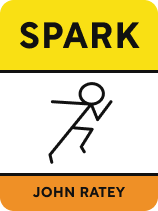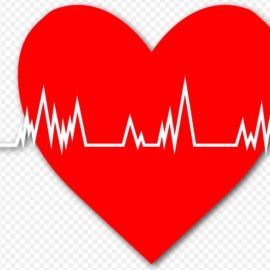

This article is an excerpt from the Shortform book guide to "Spark" by John Ratey. Shortform has the world's best summaries and analyses of books you should be reading.
Like this article? Sign up for a free trial here .
What’s the difference between acute vs. chronic stress? Which type of stress is more harmful to your body?
There are two different types of stress: acute stress and chronic stress. Acute stress is induced by short-term challenges such as exercise, fasting, and exposure to hot/cold temperatures. Chronic stress occurs when you are exposed to a high-stress situation or stimuli for a long time, which can have adverse health consequences because it skews up your body’s equilibrium.
Keep reading to learn about the effects of acute vs. chronic stress.
Acute Stress Can Be Good
Biologists differentiate between two types of stress: acute vs. chronic stress. Short-term stress is known as acute. It has a beginning and ending, and the cell is able to clean up the oxidative byproducts of burning the fuel it took to stay active. Ratey points out that living systems, like our bodies, need to be exposed to acute stress to become well-conditioned. We can’t survive without it. Mild stress—whether through exposure to natural toxins in vegetables or challenges to our muscles—strengthens our bodies and minds.
| Everyone Handles Acute Stress Differently Experts agree that acute stress can be beneficial for the body and brain, but in the case of cognition—tasks requiring figuring or thinking—acute stress can have different effects on different people. A recent study found that subjects who were exposed to acute stress and then required to take a Stroop test (where, for example, the word “blue” is written in red ink and the subject is supposed to read the word aloud) were generally more accurate, but slower. The stress response in these people heightened brain activity in their executive control network (ECN), which is responsible for decision making. A significant portion of the test subjects, however, were faster, but less accurate. The stress response in these subjects actually decreased brain activity in the ECN. This indicates that Ratey’s theories might not be accurate for every individual and that instead, acute stress might be more beneficial for some than for others. |
Chronic Stress Is Bad
The second type of stress is long-term, and it’s harmful to your brain. This is known as chronic stress. When your body is engaged in a high-stress response, it releases chemicals in a targeted way and for a narrow purpose—survival. In this state, the hormonal and neurochemical equilibrium of your body is askew. Too much time like this is damaging, as your cells never get the chance to recover. Excess cortisol in the brain, for instance, corrodes neurons, causing numerous problems such as memory loss, trouble focusing, and learning difficulties.
(Shortform note: John Medina discusses this in Brain Rules, noting that stress hormones released by chronic stress tend to especially damage the hippocampus, which is central to our ability to learn. At its most extreme, he notes, chronic stress can kill cells in the hippocampus, disrupt their neural connections, and disable the gene that creates new cells.)

———End of Preview———
Like what you just read? Read the rest of the world's best book summary and analysis of John Ratey's "Spark" at Shortform .
Here's what you'll find in our full Spark summary :
- How exercising can help with addiction, anxiety, and depression
- A look at how exercise optimizes brain function and supports mental health
- What exercises are the most beneficial, and how to stick to a routine






